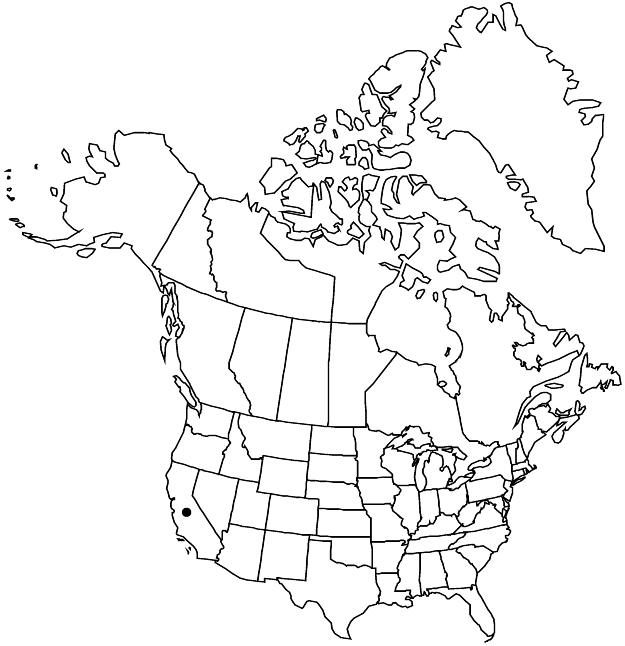Pseudostellaria sierrae
Novon 12: 82, figs. 1, 2. 2002.
Rhizomes with ± vertical, fleshy roots 5–15 cm × 0.3 mm, enlarging distally to 2–3 mm diam. Stems terete, obtusely angled or grooved when pressed, 9–27 cm, glabrous. Leaf blades narrowly lanceolate or elliptic, 0.7–3.5 × 0.1–0.5(–0.8) cm, margins flat, thinly scarious, smooth, glabrous. Inflorescences terminal, solitary flowers, sometimes on 1–2 axillary branches. Pedicels abruptly bent downward near distal end in fruit, glabrous. Flowers: sepals lanceolate to narrowly ovate, 4–6.5(–7) × 1–1.7 mm, glabrous; petals 5–8(–9) × 1–1.5 mm, apex notch 0.2–0.7 mm deep, lobes ± acute; anthers 5, yellow; styles 2–3.5 mm; stigmas terminal, 0.1–0.2 mm. Capsules 4–4.5 mm. Seeds 1(–2), light brown, circular to somewhat oblong, flattened laterally, 3–3.4 mm; tubercles broadly conic to elongate, rounded, each with 6–12 minute, red bumps that develop into 5–8 conic projections ca. 0.02 mm (50×).
Phenology: Flowering summer.
Habitat: Dry understory of mixed oak or coniferous forests
Elevation: 1400-2000 m
Discussion
Of conservation concern.
First collected in the 1880s, Pseudostellaria sierrae appears to be limited to the northern High Sierra region (J. C. Hickman 1993b).
Selected References
None.
